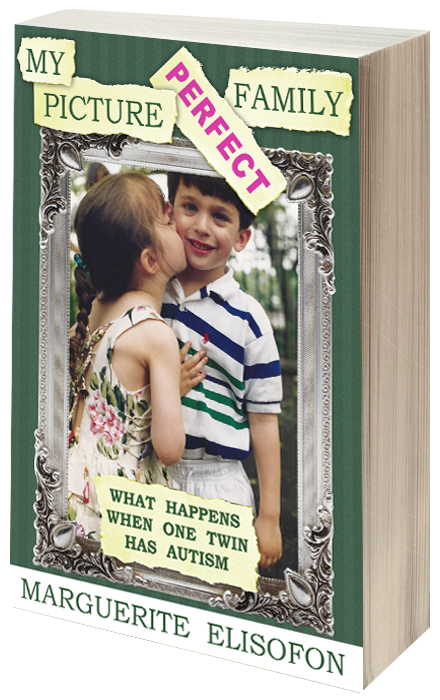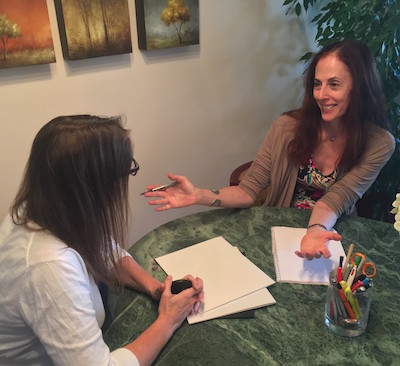 Next week every voting age adult has the opportunity to vote, and NOW is the moment for those with disabilities such as autism to show up and be heard. I hope Autism Speaks and other autism organizations will encourage everyone on the spectrum and their families to vote for candidates who will protect their rights and continue to fund healthcare and support services.
Next week every voting age adult has the opportunity to vote, and NOW is the moment for those with disabilities such as autism to show up and be heard. I hope Autism Speaks and other autism organizations will encourage everyone on the spectrum and their families to vote for candidates who will protect their rights and continue to fund healthcare and support services.
One in five Americans—approximately 20% of the population—has a disability. Imagine the difference disabled people could make if even half of them showed up to vote, especially in closely contested races! If more adults with autism understood clearly that a Republican led government puts them at of risk losing their benefits and services, I am certain they would go out and vote for Democrats in droves. Does it matter that many people with developmental disabilities don’t understand the importance of our voting to maintain our (now shaky) democracy, or all of the more complicated issues decided on a ballot? Plenty of neurotypical citizens also don’t understand the importance of their vote, especially in mid-term elections. Even well-educated intellectuals who DO understand often decide to stay home. Many people think all politicians are so dishonest that it makes no difference who wins or loses. (I used to be one of those people many years ago, but not anymore).
Next week I plan to vote with my daughter Samantha (on the autism spectrum) for all of the Democrats on the ballot. In 2016, we voted together for Hillary Clinton. Samantha does not need to understand all of the complex issues of today; she just needs to know who’s on her side. Samantha already understands that people like our president, who marginalize and bully people with disabilities, must be voted out of office. Although she didn’t understand why Clinton lost (many people still don’t!), she has learned that  Democrats are most likely to be her friends and empathetic to her needs, while Republicans are most likely to be her enemies, cutting funding for her current services.
Democrats are most likely to be her friends and empathetic to her needs, while Republicans are most likely to be her enemies, cutting funding for her current services.
According to a psychiatrist who specializes in autism, the biggest challenge for his patients on the spectrum is having empathy for other people’s needs. (I think it’s worth adding that plenty of neurotypical people also suffer from a lack of empathy nowadays.) Perhaps when it comes to electing politicians, being self-centered is actually an advantage for adults on the spectrum. Politicians are NOT reaching out to people with autism because disabled people aren’t viewed as a significant voting bloc (if they are seen at all). But actually, adults with autism are a very simple group to reach, if we appeal to their self-interest. Many (if not all) people vote their pocketbooks (unless they are wealthy AND philanthropic). Why shouldn’t people with autism learn how to vote in their own self-interest (which isn’t rocket science)?

Autism families and advocacy organizations can teach adults with autism how to register and vote. Many adults on the spectrum can certainly understand the rudimentary differences between Democrats and Republicans. I’d like to see more of them join my daughter Samantha at the polls. In order for people on the autism spectrum to find meaningful employment and appropriate housing, they must make their voices heard by voting. Once adults with autism learn to vote, they will probably continue to do so in every election for the rest of their lives, given that they feel comfortable sticking to set routines.
Samantha and her friends with disabilities must make themselves seen as well as heard in our deeply divided and angry world. That means they must vote in every election and learn to advocate for themselves, if they want to participate in a neurodiverse world. Teaching neurotypical children to advocate effectively for themselves as adults is a difficult job for all parents. Teaching children with autism who struggle with communication skills to stand up for themselves is an even more daunting task. Persuading a person with autism to vote for Democrats? Easy-peasy, as my daughter would say.






 Marguerite Elisofon is a New York City writer and the author of My Picture Perfect Family, a memoir about how her family navigated life with a child on the autistic spectrum before the internet and support groups existed. She also blogs about parenting young adults and disability related issues in The Never Empty Nest. Her writing has been featured in a variety of publications, including Time and NY Metro Parents magazine, and her family’s story has been featured by the NY Post, Fox News, The Daily Mail, and on Jenny McCarthy’s Dirty Sexy Funny radio show. A Vassar graduate, Marguerite was born and raised in New York City, where she still lives with her husband, Howard, in their mostly-empty nest. She is available to speak about a wide variety of issues relating to twins, parenting, and autism.
Marguerite Elisofon is a New York City writer and the author of My Picture Perfect Family, a memoir about how her family navigated life with a child on the autistic spectrum before the internet and support groups existed. She also blogs about parenting young adults and disability related issues in The Never Empty Nest. Her writing has been featured in a variety of publications, including Time and NY Metro Parents magazine, and her family’s story has been featured by the NY Post, Fox News, The Daily Mail, and on Jenny McCarthy’s Dirty Sexy Funny radio show. A Vassar graduate, Marguerite was born and raised in New York City, where she still lives with her husband, Howard, in their mostly-empty nest. She is available to speak about a wide variety of issues relating to twins, parenting, and autism. 